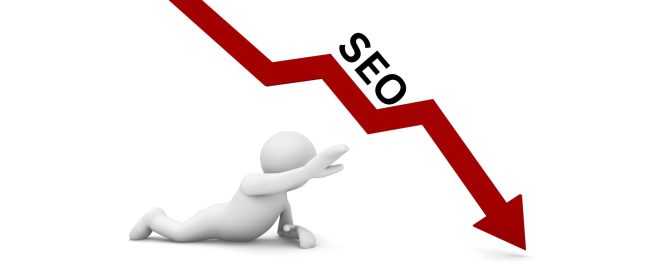Healthcare Website Negative SEO: How to Protect Your Site

Negative SEO is a real threat to any business, but it can be especially damaging to businesses in the healthcare industry. If you run a website that provides information on healthcare topics or sells products related to healthcare, then you need to protect your site from negative SEO attacks.
It can affect your practice’s reputation and, even worse, cost you money in lost customers and revenue opportunities. For doctors and physicians, medical SEO is a significant priority.
Read more: Why Medical SEO Is A Game Changer for Doctors?
Fortunately, there are steps that healthcare professionals can take to protect their sites from negative SEO attacks. Read on to learn about negative SEO, how it can affect your healthcare website and the steps you can take to protect it.
What Is Negative SEO?
Negative SEO is a type of attack where someone maliciously tries to damage your website’s search engine rankings by using tactics such as submitting spam links or creating pages with duplicate content. The aim is to sabotage your website’s ranking so that when people search for terms related to your business, their search queries are directed away from your website.
Suppose a competitor or malicious actor were to use tactics such as submitting spam links to low-quality websites or creating pages with duplicate content. In that case, it could hurt the hospital’s rankings in search engine results and cause potential patients to turn away.
Here are some steps to protect your hospital’s website and reputation:
Monitor Your Backlink Profile
Backlinks are one of the most crucial SEO ranking factors, so keeping an eye on who is linking to your website is essential. Malicious competitors may try to sabotage your site by adding low-quality links that can hurt your rankings. Monitor incoming backlinks using a link monitoring tool and disavow any suspicious or spammy links pointing to your website.
Monitor Your Site for Spam Content
Negative SEO attacks may also focus on adding spammy content to your site to damage its credibility and rankings. This could include adding irrelevant links, keyword stuffing, or inappropriate content that can damage your brand. Regularly check your website for suspicious activity and delete spammy content immediately.
You can set up automated alerts to notify you if anything suspicious is found on your website and stay one step ahead of the attackers.
Use Google Analytics
Google Analytics can provide valuable insights into the performance of your healthcare website and help you monitor for any negative SEO attacks. With Google Analytics, you can track which pages are getting the most traffic, what keywords people use to find your site,
where they’re coming from, and how long they stay on a page. With this data, you can see if any suspicious activity is happening on your website, like a sudden drop in traffic or an influx of traffic from unfamiliar sources.
Check Site Speed and Performance
If your website takes too long to load or has pages that are slow to render, you’re creating an opportunity for attackers to undermine its performance by using techniques like link stuffing. Make sure all of the code on your website is optimized and compressed, and use a reliable hosting provider to ensure that all pages are running as quickly as possible. Finally, test your website frequently using an online tool like Google Pagespeed Insights to ensure it performs at its best.
Call Sequence Health for the best Medical SEO strategy and negative SEO protection. Our experienced professionals will review your website and help you create an effective plan to protect it from malicious attacks.





